Or an analysis of characterization in Avengers Assemble
By Kelly Sue DeConnick and Stefano Caselli
Avengers Assemble is the continuity light version of the Avengers franchise meant to be accessible to new readers. It utilizes a rotating cast of favourite Avengers going on missions to save the world in shorter self-contained stories. It's basically a very pretty, very well written straight forward Superhero comic designed to be an introduction to Superhero comics.
It's not what I would typically read.
If you pay attention to the ten Superhero comics I'm reading at any given time you'll notice that I tend to go for the more polarizing and original... the ones that are not strictly Superhero comics. I like to read things that are new, that contain the characters and themes I love but also do something more that changes it up or elevates the material. The fact that Avengers Assemble is intentionally a straight forward Superhero comic would generally make it a comic that I would skip in the interest of reading something else.
But Avengers Assemble is ridiculously well executed. The writing is excellent and the art is perfect for the script. It's also a comic that focuses on making each character in the ensemble distinct.
When it comes to team Superhero books I'd say there are two key ingredients to success: fun/exciting character moments and a clever and functional central plot. I'd even go so far as to say a well negotiated compromise between these two story elements is the formative norm of a good team book. There are certainly different approaches to this, and most writers/comics end up somewhere on a spectrum between a character driven story or a story driven by the overall plot. Typically this balance falls towards the plot end of things with characters each distinct within themselves, but with poorly defined relationships. This approach can certainly lead to some great comics, but kind of at the expense of wholly realized characters.
Avengers Assemble puts characterization first in a way that is atypical in Superhero team books and this, I think, is what makes the comic remarkable and worth reading.
*SPOILERS* will exist beyond this point.
Every person in real life is, if not unique, then certainly distinctive. If fiction is to mimic real life then every character portrayed in a group also has to be distinct and defined. Avengers Assemble does a really good job of this: the entire cast of the ensemble felt realized and distinct from every other member of the cast.
(Rather than go page to page and annotate every single character moment, I'm just going to list the overall sense of each character).
Iron Man: Tony is brilliant but insecure, which makes him competitive and show-offy. As a result he is fairly likeable and good with people, but also somewhat childish and a bit of an egotistical dick (This is all conveyed rather effectively in the scene where he proposes "the bet" to one-up Banner). He cares a little too much about getting others approval.
The Hulk: Banner is smart, timid, maudlin, and maybe possessed of a bit of an inferiority complex (does pessimistic futurist talk; rises to bet). This makes him awkward and self-conscious in group settings and the kind of person who gets teased, I think. He just wants to be respected. As Hulk is he is simpler and more excitable, kind of a weird fusion of man and child.
Captain Marvel: Carol is at once competent and mature (won't participate in "the bet") while still having a sense of fun (quips with Tony, enforces losing conditions of bet). She is also a bit of a control freak (wants to be referee and judge).
Captain America: Steve is a serious guy. He knows who he is and is secure in it which means he isn't reliant on validation from others. This makes him a bit terse and plain spoken. Steve is a guy who is comfortable being silent. He carries himself with maturity and good deal of poise. He does not participate in "the bet", and clearly disproves of it.
Spider-woman: Jessica is awkward and unsure of herself and how she fits in. I got this mostly from artwork and how she gravitates towards Hulk as a fellow outsider. Also she tends towards self deprecation a bit, which has always struck me as a mechanism for breaking down the awkward. She is also pretty funny, if you like her brand of humour (which I do). She clearly wants to be part of the group but feels that she isn't.
Thor: Is probably the least defined the the central cast. But even then we get a character who is kind of aloof and burdened with weird cultural expectations and references.
Avengers Assemble does this level of characterization quite well, but it's the next thing it does that is especially cool. In real life people aren't defined purely by character traits and moods. For better or worse we are all somewhat defined by our relationships; especially within group dynamics. This is where most ensemble comics break down and where Avengers Assemble truly excels.
Iron Man and The Hulk: Tony and Banner, like a lot of really smart academics I know, are super competitive with one another in a really childish way. However, when things get complicated, their underlying respect, common ground, and admiration shine through. They have a complicated relationship built around their similarities and mutual insercurities.
Captains Marvel and America: Carol and Steve just get each other. They know where they each stand and have a comfortable association built on just being on the same wavelength. Also, so much trust. The kind of friendship where silence is comfortable. I suspect they would do okay as roommates.
Spider-woman and The Hulk: Jessica seems kind of drawn to both Banner and the Hulk. I read it as a projection of her own self-doubts, lack of confidence, and feelings of kind of being an outsider. She sees those traits in Banner/Hulk and responds to them. Kids on the outside gots to stick together.
Thor and Everyone: Thor is the worst defined character in the book, and his relationships with other characters also suffer a bit. The result is he seems, well, aloof and apart from his fellow Avengers. Given that he is a centuries old Norse god, this kind of characterization actually makes a good deal of sense. So maybe it was intentional? I'm not sure.
Iron Man and Captain America: There isn't a huge amount of interaction to go on, but well, have you ever had a coworker or classmate who, despite being admirable in a number of ways, just kind of rubbed you the wrong way? Well, I get that kind of take on Steve and Tony in Avengers Assemble.
Hulk and Everyone (but Spider-woman): Hulk is hulk. Dangerous, childish, hard to get along with. The Avengers seem to view him a bit as a liability and thing instead of a full fledge person and equal.
Captain Marvel and Iron Man: Carol and Tony are friends. Friends in that there-are-things-I-like-about-you-but-we-should-never-be-roomates way. They clearly see things in one another they like and enjoy, but are clearly very different people who I'm sure get on each others nerves frequently. Also the teasing.
Captain Marvel and Spider-woman: Oddly, these two don't have a well defined relationship in Avengers Assemble. I think they share one spat of dialogue, but its pretty plot drivey and, from a character perspective, more to do with Spider-woman and Hulks relationship.
I think one of the more remarkable aspects of the strong character work in Avengers Assemble is that its all integrated into a self-contained Superhero adventure comic. All this characterization is built into a three comics that explain the formation of the team, lay out the motivation of the plot, introduce a threat and a villain, contain the requisite punching, and conclude in a satisfying way. This kind of economy of storytelling is really impressive.
Another thing that's probably a worthwhile take away from this arch of Avengers Assemble is that solid character work can make a read incredibly satisfying without resorting to EXTREME STAKES to make the story meaningful. When reading these comics I became invested in the characters and their relationships and cared more about their emotional consequences than the threats they faced in this comic. Not to say that the plot stakes weren't interesting or considerable (they were!), but this is a mainstream Superhero comic, the good guys are gonna win eventually (possibly with a noteworthy and temporary character death along the way). By making the characters and their relationships important readers get an additional series of consequences to worry about that are far more likely to pay off in an interesting way. I think I'd like to see more of this kind of storytelling in Superhero comics, it's a nice change.
But seriously, I would read a Kelly Sue DeConnick penned Rescue Me style comic about the Avengers hanging out in the Tower between missions and their daily personal lives in a heartbeat.
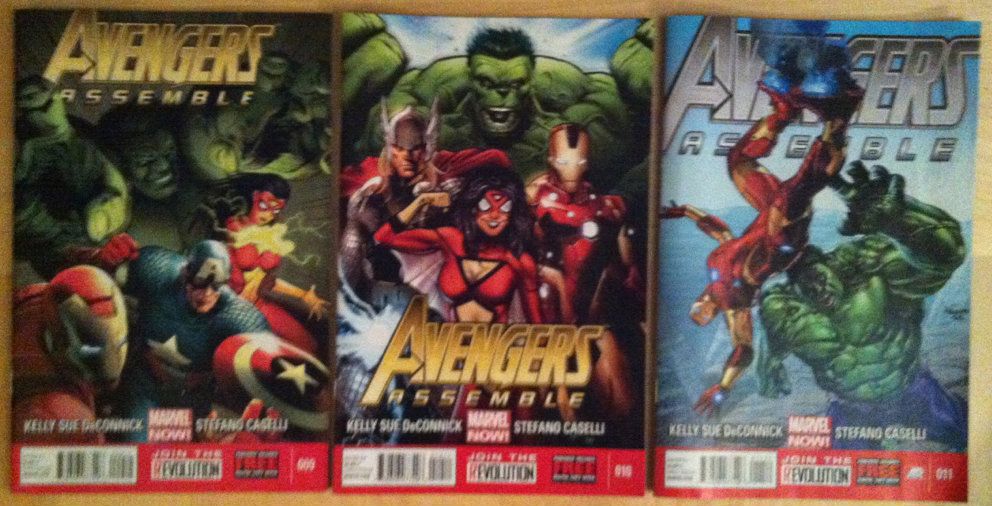
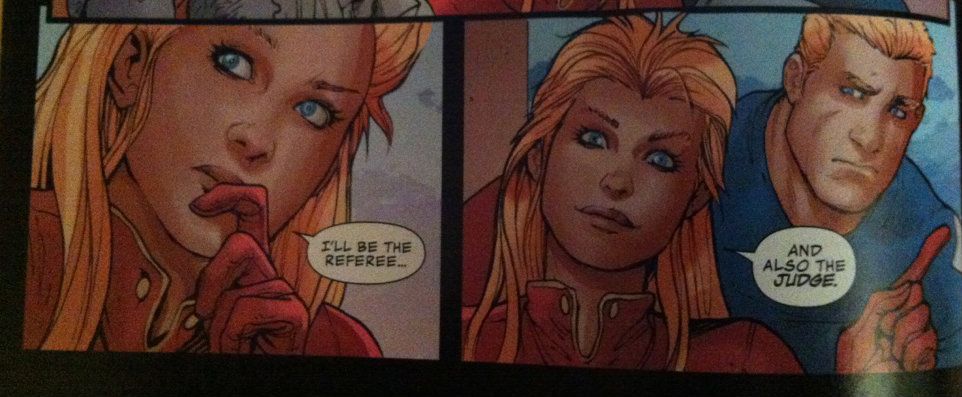
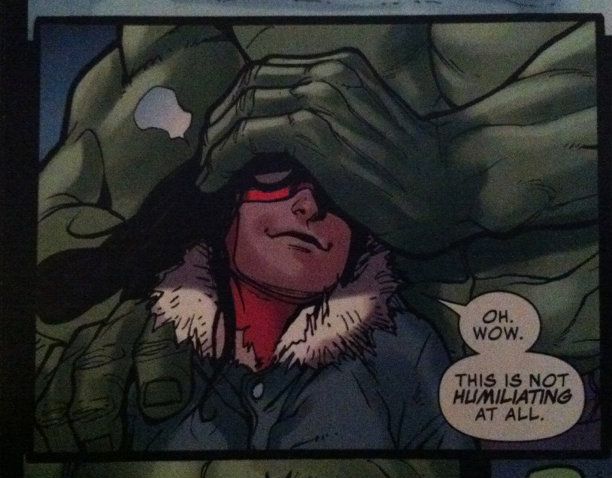
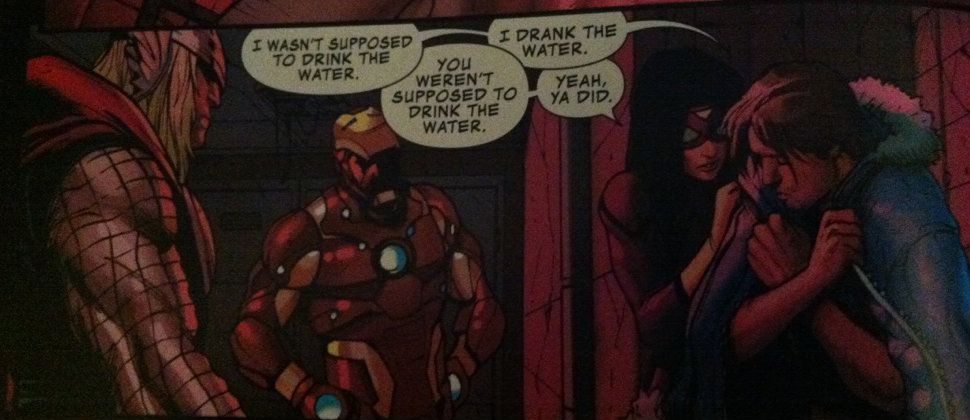
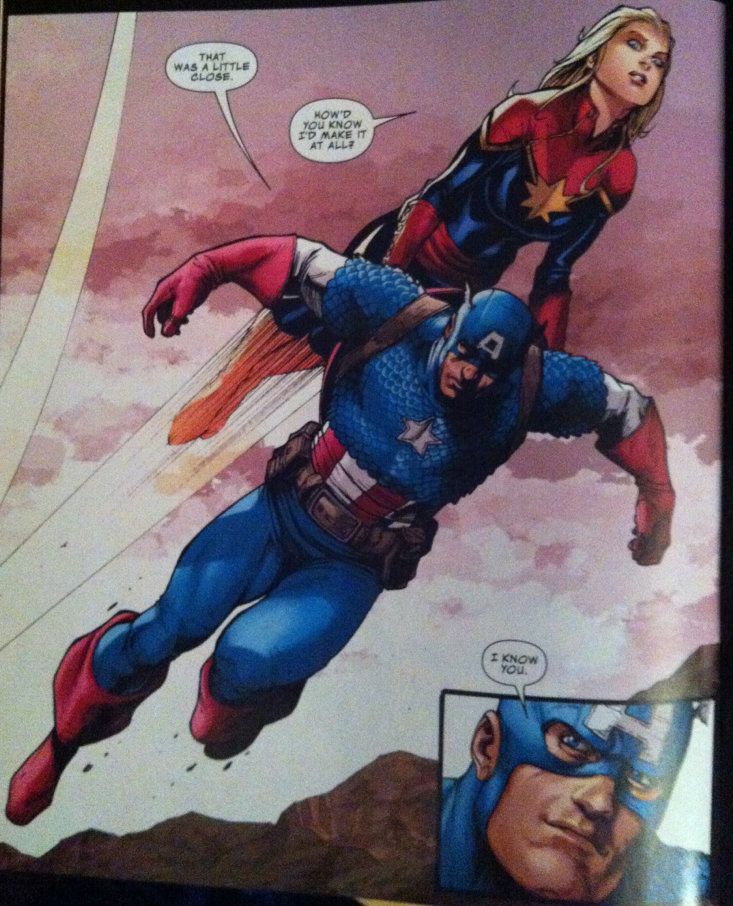
No comments:
Post a Comment